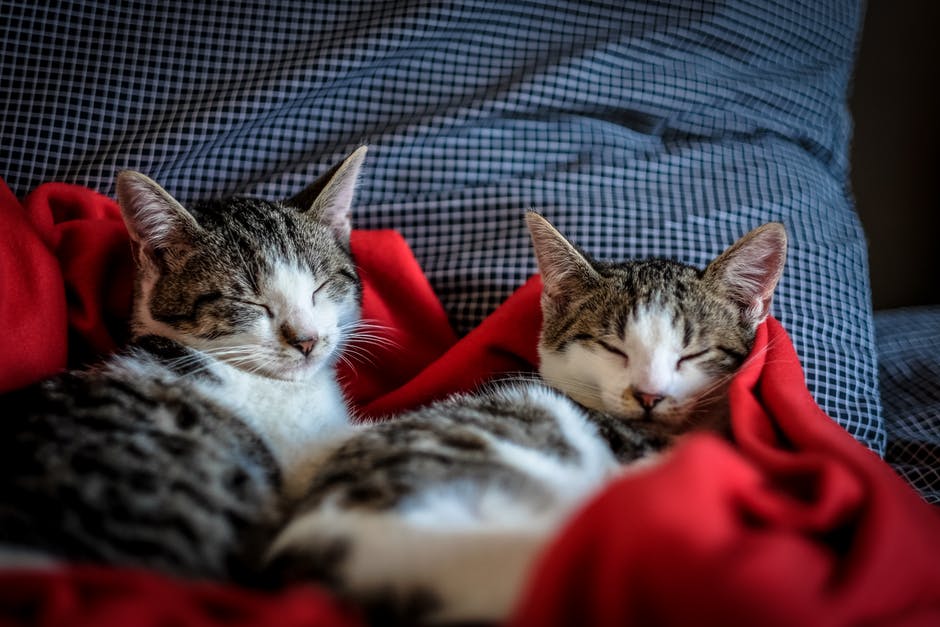Take it slow. Whether you’ve already adopted a cat or it’s something you’re considering, it’s important not to make any drastic changes in your pet’s life right away. Your new cat should have time to adjust and know its new home. Read on learn about what to know before adopting a cat.
Knowing the Cat’s Diet
When adopting a cat, knowing the dietary needs is essential. Cats are carnivores that need balanced nutrition for their overall health. Commercial cat foods include chicken, beef, fish, and liver proteins.
They will also need vitamins and minerals to maintain their internal balance. Canned food may also need to be supplemented with dry food with proteins, vitamins, and minerals. Feeding a cat a raw-meat diet assures that the diet consists of the essential proteins and other nutrients cats need to be healthy.
A raw-meat diet is a complete and balanced diet for cats. When adopting a cat, it is essential to find out the cat’s regular diet, feed the same not to upset their digestive system, and be aware of any food allergies they may have.
Remember not to feed a cat human food because it often lacks essential nutrients that cats need. A good diet can help your cat stay healthy and maintain a healthy weight.
Providing Proper Grooming
Long-haired cats need daily brushing, while short-haired cats should get weekly brushing. Proper grooming is essential for any cat to keep their coat healthy and free of mats and tangles. Moreover, regular brushing should be done for hygiene and to help distribute the natural oils in their skin and fur.
It’s also essential to trim your cat’s claws at least once a month to keep them from causing damage to furniture or skin. Regular care and cleaning of your cat’s ears and eyes are essential to prevent infections or eye irritation. Providing proper grooming is something that you should consider before adopting a cat.
Veterinary Care
Before adopting a cat, it is essential to ensure you understand the necessary veterinary care they require. All cats will need regular checkups from a veterinarian, vaccinations against common illnesses, and prevention of parasites. When adopting a cat, inquire whether it has been spayed or neutered, and if not, discuss this option with your veterinarian.
Regularly brushing the cat’s coat and nail trimming is also paramount for preventing infection and caring for your cat’s overall well-being. When caring for cats, be aware of their unique health risks, such as serious diseases like feline leukemia and feline immunodeficiency virus, which can affect the immune system and be potentially fatal.
Supplies Needed
Before adopting a cat, you must have all the necessary supplies to provide your cat with a healthy and happy home. These supplies include the following:
Litter Box and Litter
You must be prepared to provide a clean and comfortable litter box with suitable, high-quality litter. The litter box must be placed in a quiet, easily accessible area that isn’t near your cat’s food and water. It’s also wise to have multiple litter boxes in separate areas of your home if your cat experiences issues or starts to avoid them.
Food and Water Bowls
Investing in two separate bowls for food and water – preferably stainless steel is best. This helps keep the feline’s food and water clean, and keeping track of their meals is more accessible. You should also ensure their bowls are placed in a calm and quiet area of your home when they aren’t actively feeding.
This will help to reduce stress and anxiety for the cat. Additionally, cleaning and changing their water at least every day and their food bowls once a week or as needed is essential. Properly caring for their eating needs is critical to any cat owner’s duties.
Cat Toys
Cats enjoy playing with various objects, from cardboard boxes to interactive toys. It is also important to remember to rotate the toys regularly to keep them entertained. Nontoxic materials, like natural fibers, are best for cats, as they won’t contain harmful chemicals. When selecting new toys, focus on ones that help the cat express their natural behaviors. This may include toys that imitate prey, like mice, or toys that provide enrichment activities, like boxes with treats inside.
Comfortable Carrier
You must find an appropriately sized carrier for your cat, depending on their size and weight. These carriers should be roomy but not too big and have breathable mesh sides for airflow. Choose a carrier made of lightweight, durable materials that will not hurt or irritate your cat if it scratches or bites when it gets anxious. Also, look for pages with secure fasteners to keep your cat from escaping.
Financial Considerations
Before doing so, it is essential to research the estimated costs associated with owning a pet. For starters, medical expenses such as spaying and neutering, as well as vaccinations, must be taken into account. The cost of daily care and monthly supplies, such as food, litter, and toys, should also be factored in.
Depending on the cat’s age, ongoing medical costs may need to be covered. To ensure the cat is properly cared for, allocating funds for regular checkups with a trusted vet is also essential. Furthermore, it is wise to set aside unexpected costs in an emergency.
Having a Pet Insurance
Before leaping into pet ownership, prospective cat owners need to consider getting pet insurance. With pet insurance, cat owners can insure their pets against unexpected illnesses, serious injuries, and other conditions that may require costly treatment.
While pet insurance does not cover every potential problem, it can help reduce the financial burden of caring for your cat should any medical issues arise. When researching pet insurance, read the additional coverage policies and ensure that your policy suits the needs and budget of your particular situation.
Follow This Guide on What to Know Before Adopting a Cat
It is essential to understand what to know before adopting a cat. Consider the expenses, time, and energy necessary to ensure a cat is correctly cared for to form a rewarding bond. If you can meet those requirements, contact your local humane society and plunge into the world of cats! To learn more helpful tips, be sure to visit our site today!




